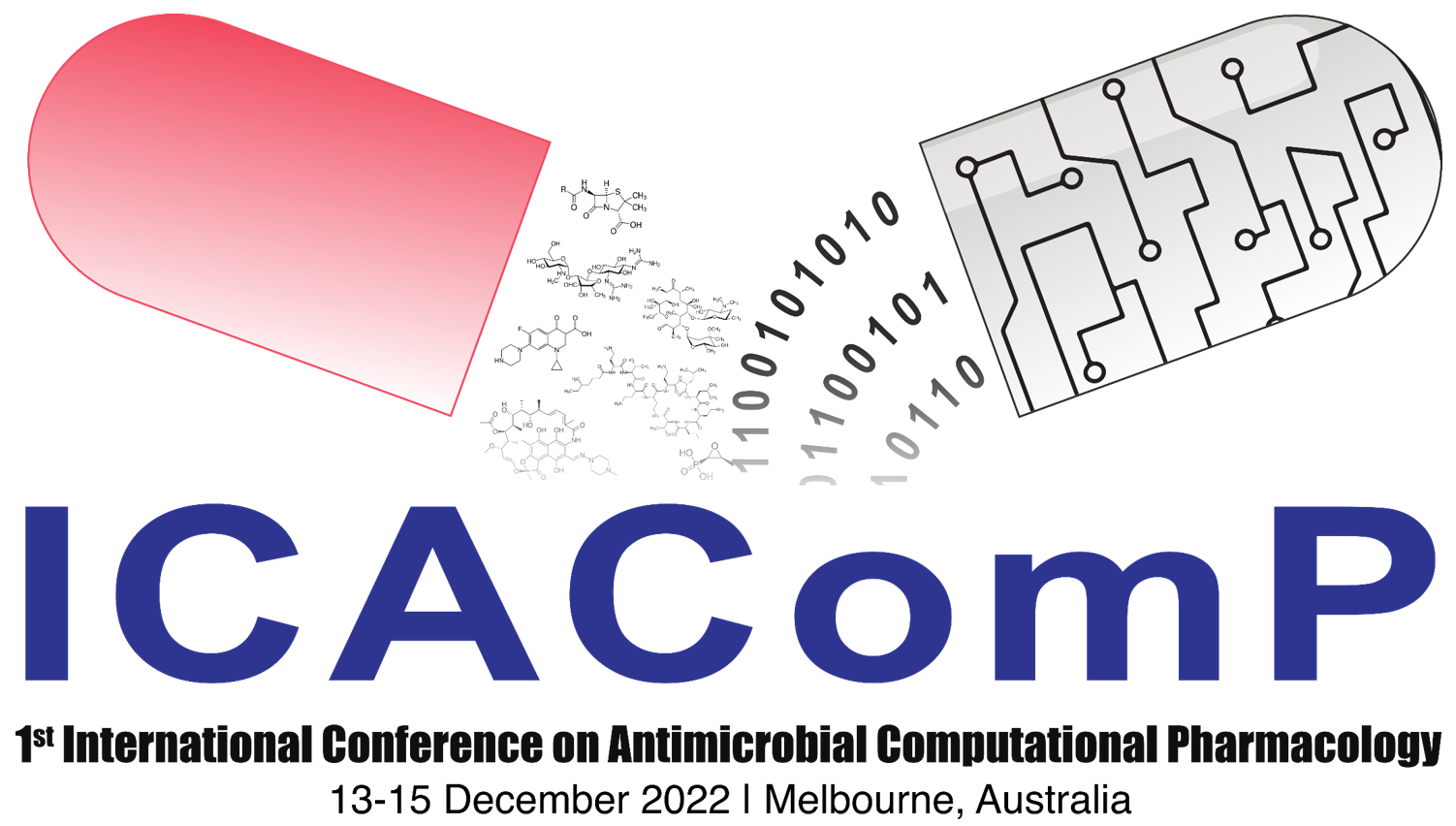Keynote Speakers
| Prof. Ben Howden | |

| Professor Benjamin Howden is Director of the Microbiological Diagnostic Unit Public Health Laboratory and co-director for the WHO CC for AMR at the Doherty Institute. His primary research focus is pathogen genomics, with emphasis on translation of research outcomes into clinical and public health practice. Prof Howden is leading a four-year national program funded by the Australia Government Medical Research Future Fund focusing on precision public health in Australia through integrated pathogen genomics. His research has resulted in over 300 publications, including seminal studies on the mechanisms and clinical impact of drug-resistance in Staphylococci and transmission of drug-resistant pathogens. |
| Genomics for understanding and tracking AMR | |
| Tuesday, December 13, 2022 | |
| 09:00 AM - 09:25 AM | |
| A/Prof Arun Konagurthu | |

| Arun Konagurthu is an Associate Professor at Monash University's Faculty of Information Technology and currently serves as the Director of Graduate Research at the Department of Data Science and Artificial intelligence. Between 2010-2013, he held the Larkins Fellowship at this Faculty. Prior to that, he held the Eberly College of Science Fellowship at Pennsylvania State University, while postdoc-ing with Arthur Lesk at The Hucks Institute of Genomics, Proteomics and Bioinformatics. His research interests cover protein structural bioinformatics, statistical inductive inference, combinatorial optimization, and algorithms. |
| Universal architectural concepts underlying protein folding patterns | |
| Tuesday, December 13, 2022 | |
| 09:40 AM - 10:05 AM | |
| A/Prof Darren Creek | |
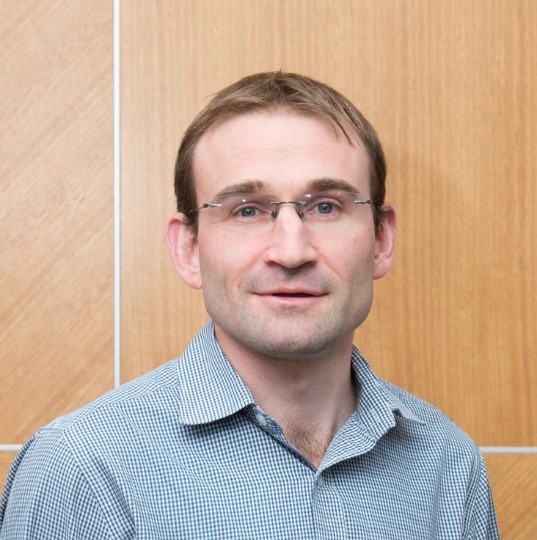
| Associate Professor Darren Creek is leader of the Malaria Metabolomics and Proteomics group at the Monash Institute of Pharmaceutical Sciences, and is Director of Metabolomics at the Monash Proteomics and Metabolomics Facility. He completed his PhD at Monash University in 2007, and performed post-doctoral research in Uganda, Scotland and Australia working on malaria drug discovery and clinical trials, before focusing on parasite metabolomics. He developed several new analytical tools for the metabolomics field, and has discovered new metabolic pathways and drug mechanisms in tropical parasites, as described in over 130 publications. He has served on the Boards of National and International Metabolomics Societies and was awarded the Inaugural Metabolomics Society Medal in 2019. |
| A systems pharmacology approach to reveal mechanisms of antimalarial drug action and resistance | |
| Tuesday, December 13, 2022 | |
| 10:50 AM - 11:15 AM | |
| A/Prof Berin Boughton | |
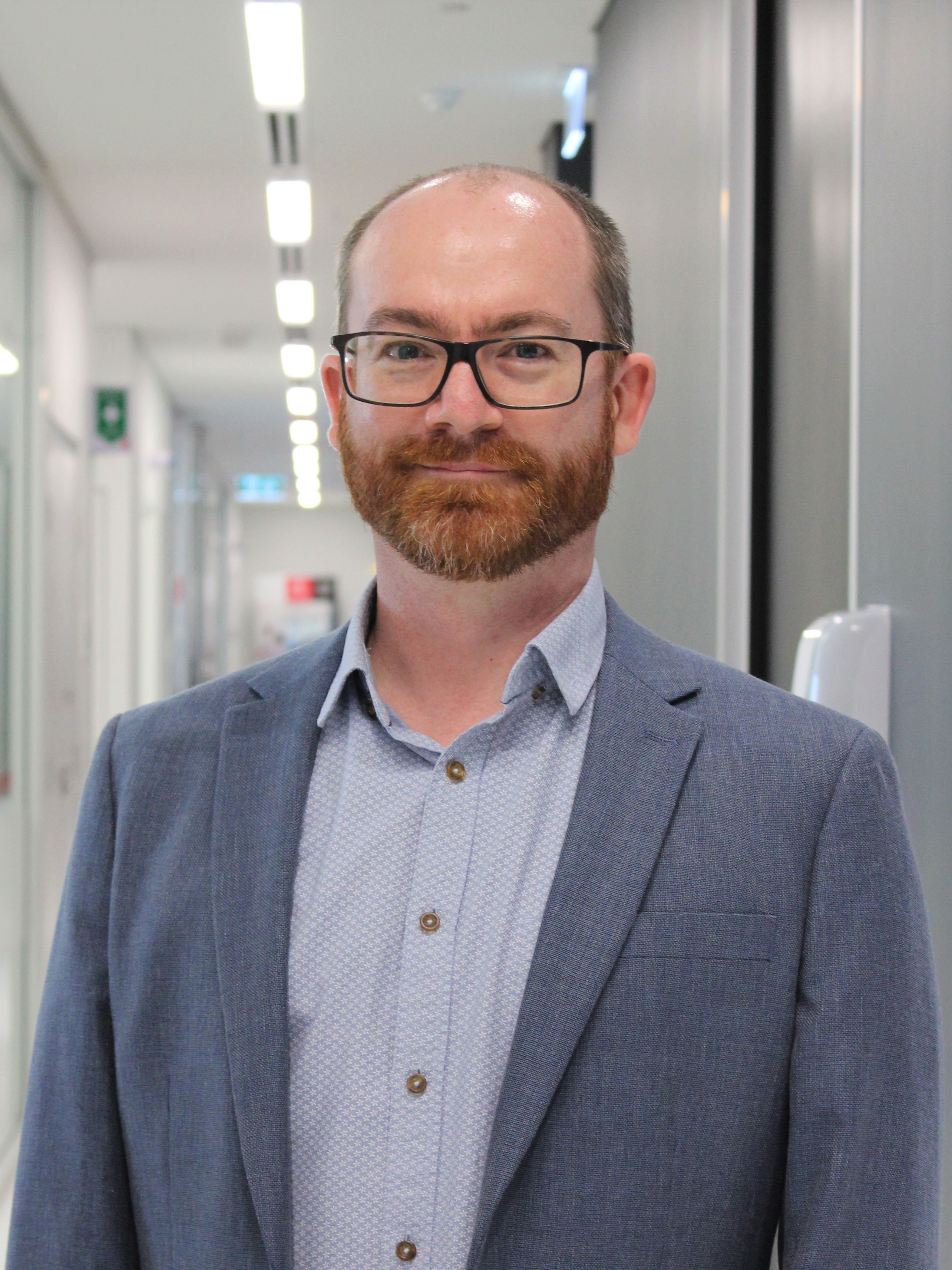
| Associate Professor Berin Boughton is leader of Magnetic Resonance Mass Spectrometry at the Australian National Phenome Centre, Murdoch University, Perth, where his research is focussed upon ultra-high resolution mass spectrometry in imaging and high-throughput contexts. He completed his PhD in Chemistry at the University of Melbourne in 2010, focussing upon the synthesis and evaluation of inhibitors of the bacterial enzyme dihydrodipicolinate synthase (DHDPS) involved in lysine biosynthesis. He then joined Metabolomics Australia at the School of Biosciences, University of Melbourne, where he developed and applied new metabolomics methods for the measurement of metabolites in a wide range of systems. From 2013 he led the development of mass spectrometry imaging and spatial metabolomics at University of Melbourne until moving to Western Australia in 2020. |
| Imaging metabolic flux in vivo using mass spectrometry imaging | |
| Tuesday, December 13, 2022 | |
| 11:30 AM - 11:55 AM | |
| Prof Falk Schreiber | |

| Falk Schreiber is a computer scientist who has worked in bioinformatics and computational systems biology since more than 20 years at different places in Australia and Germany. His research focuses on analysing structure and dynamics of biological networks, modelling of biological processes, as well as visualisation and immersive analytics of life science data. He and his team develop novel computational techniques and algorithms to solve problems from molecular biology to collective behaviour. Falk Schreiber holds the chair for Life Science Informatics at the University of Konstanz and is an Adjunct Professor with Monash’s Faculty of IT. |
| Biological networks: computational methods from modelling standards to visual and immersive analytics | |
| Tuesday, December 13, 2022 | |
| 14:00 PM - 14:25 PM | |
| Prof Ming Chen | |
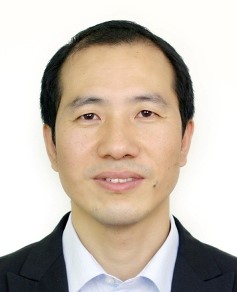
| Prof. Ming Chen received his PhD in Bioinformatics from Bielefeld University, Germany, in 2004. Currently he is a full Professor in Bioinformatics at College of Life Sciences, Zhejiang University . His group research work mainly focuses on Omics data integration and mining, Plant non-coding RNAs, Systems biology and integrated network modelling, Precision medicine. Prof. Chen serves as an academic leader in Bioinformatics at Zhejiang University. He chairs the Bioinformatics society of Zhejiang Province, China. He is a committee member of Chinese societies for Multi-omics and Integrative Biology, Computational Systems Biology, Functional Genomics & Systems Biology, and Biomedical Information Technology. |
| Integrative Bioinformatics for Protein-Protein Interactions | |
| Tuesday, December 13, 2022 | |
| 14:40 PM - 15:05 PM | |
| Dr. Jiawei Wang | |
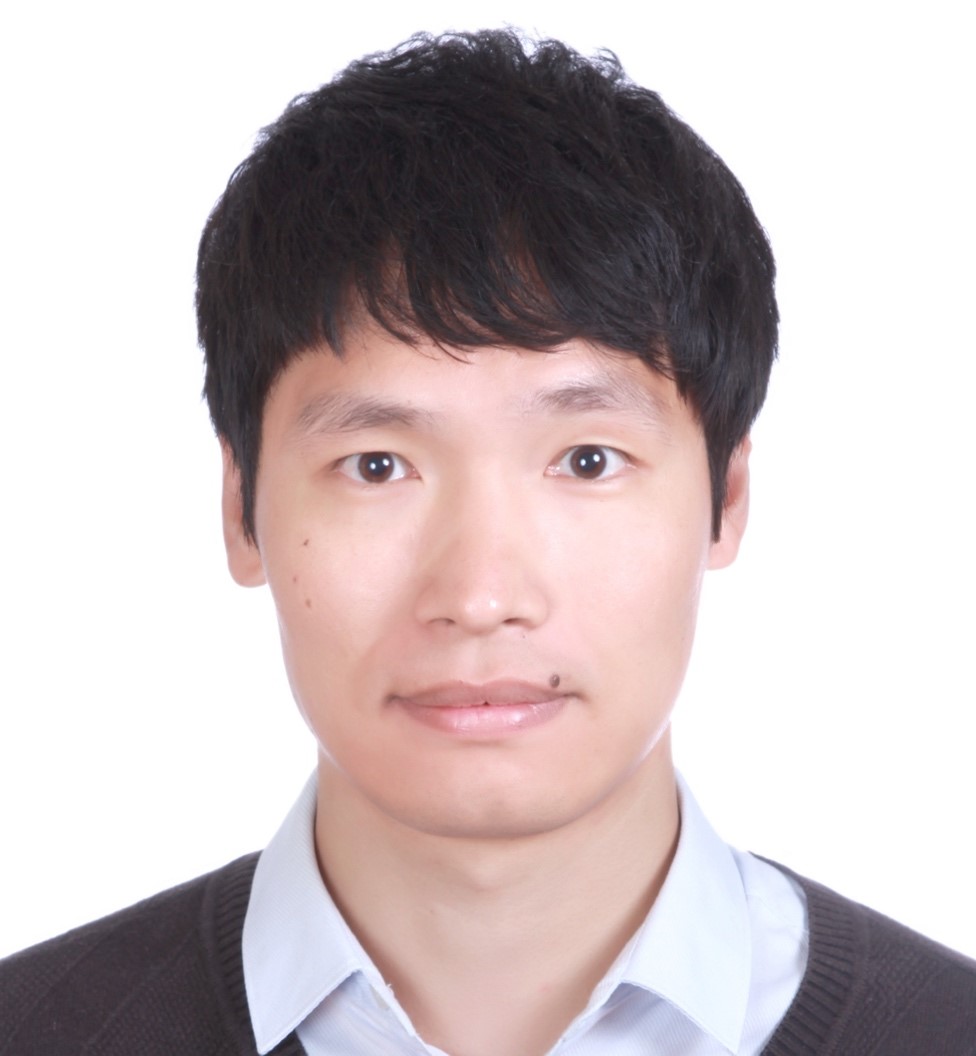
| Dr. Jiawei Wang is a Marie Curie Fellow and EMBO Non-Stipendiary Fellow at the European Bioinformatics Institute (EMBL-EBI) and University of Cambridge, where he works on single-cell omics and multi-omics integration. Previously, Dr. Wang spent 4 years of PhD and postdoc at Monash University, Australia, mainly working on machine learning-based sequence analysis. |
| Genome-scale phage protein annotation using deep learning | |
| Tuesday, December 13, 2022 | |
| 16:35 PM - 17:00 PM | |
| Dr. Radu Botgros | |
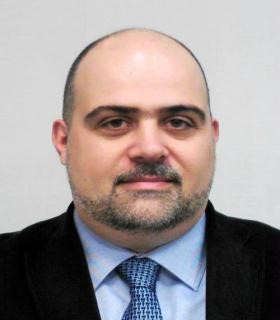
| Dr. Botgros is an Infectious Diseases specialist that holds the position of Senior Scientific Officer for the Office of Health Threats and Vaccines Strategy at the European Medicines Agency. He worked as an ID clinician for 10 years before joining the Agency in 2009 as Scientific Administrator in the Paediatric team. From there he moved to the Anti-infectives and Vaccines team where he worked with the efficacy and safety-related pre- and post-authorisation aspects of centralised marketing authorisation applications for the treatment and prevention of infectious diseases. Since March 2020 he is a member of the Health Threats and Vaccines Strategy team. His main interests are with the development of antibacterial, antifungal and antiviral medicines and with public health, with a special focus on the fight against AMR. |
| The role of PK/PD in the development and evaluation of new antibacterials-an EU perspective | |
| Tuesday, December 13, 2022 | |
| 17:15 PM - 17:40 PM | |
| Prof. Brian Tsuji | |
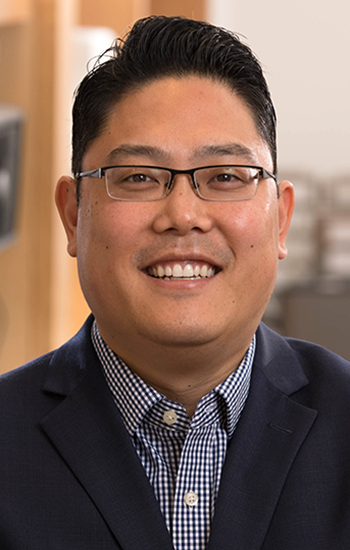
| Our Interdisciplinary Laboratory is entirely dedicated to Clinical and Translational Approaches to Combat Antimicrobial Resistance. My team is focused PK/PD approaches to
optimize antimicrobial dosing. With the recent emergence of multidrug-resistant Gram-negative bacteria, our independent, NIH-funded research program was one of the first to define and refine new
exposure response relationships for the ‘last line’ polymyxin antibiotics (polymyxin B and colistin) and carbapenems. We were also one of the first laboratories to define key PK/PD relationships for
a number of antibiotics that were crucial to guide dose selection in Phase 1, 2, and 3 clinical trials. I have been very fortunate to be the Principal Investigator of R01AI111990, a $4.4M NIH grant which seeks to investigate the PK/PD of polymyxin combinations. We have published a series (n>39) of original manuscripts which have focused on innovative dosing strategies for polymyxin and β-lactam combinations. This allows our team to push the boundaries of knowledge in antimicrobial pharmacology and team science, and it is our clinical focus which allows us to provide insights into translating these scientific findings toward the care of critically ill patients who are infected with resistant Gram-negatives. I have been fortunate to be the mentor of 12 post-doctoral fellows who have gone on to successful careers. I also embrace my role as Associate Dean of Clinical and Translational Sciences in developing new and exciting programs and collaborations across the University for our faculty and students. A Past-President of the International Society of Anti-Infective Pharmacology, a member of the Antimicrobial Resistance Leadership Group and the Co-Chair of the International Consensus Guidelines for Optimal Polymyxin Use in collaboration with 6 international infectious diseases societies and organizations, I will leverage these experiences for our faculty and students at UB. As Associate Dean for Clinical and Translational Sciences, I was honored to lead the Schools and UB‘s submission to build a New Masters of Science in Clinical and Therapeutics, to build teams in the PharmD Clinical Research Program, to foster NIH funded translational research, and to develop innovative experiences to train of the next generation of pharmacists and scientists. |
| New Strategies to Combat Gram-negative Resistance and Persistence | |
| Wednesday, December 14, 2022 | |
| 09:00 AM - 09:25 AM | |
| Dr Jon Stokes | |
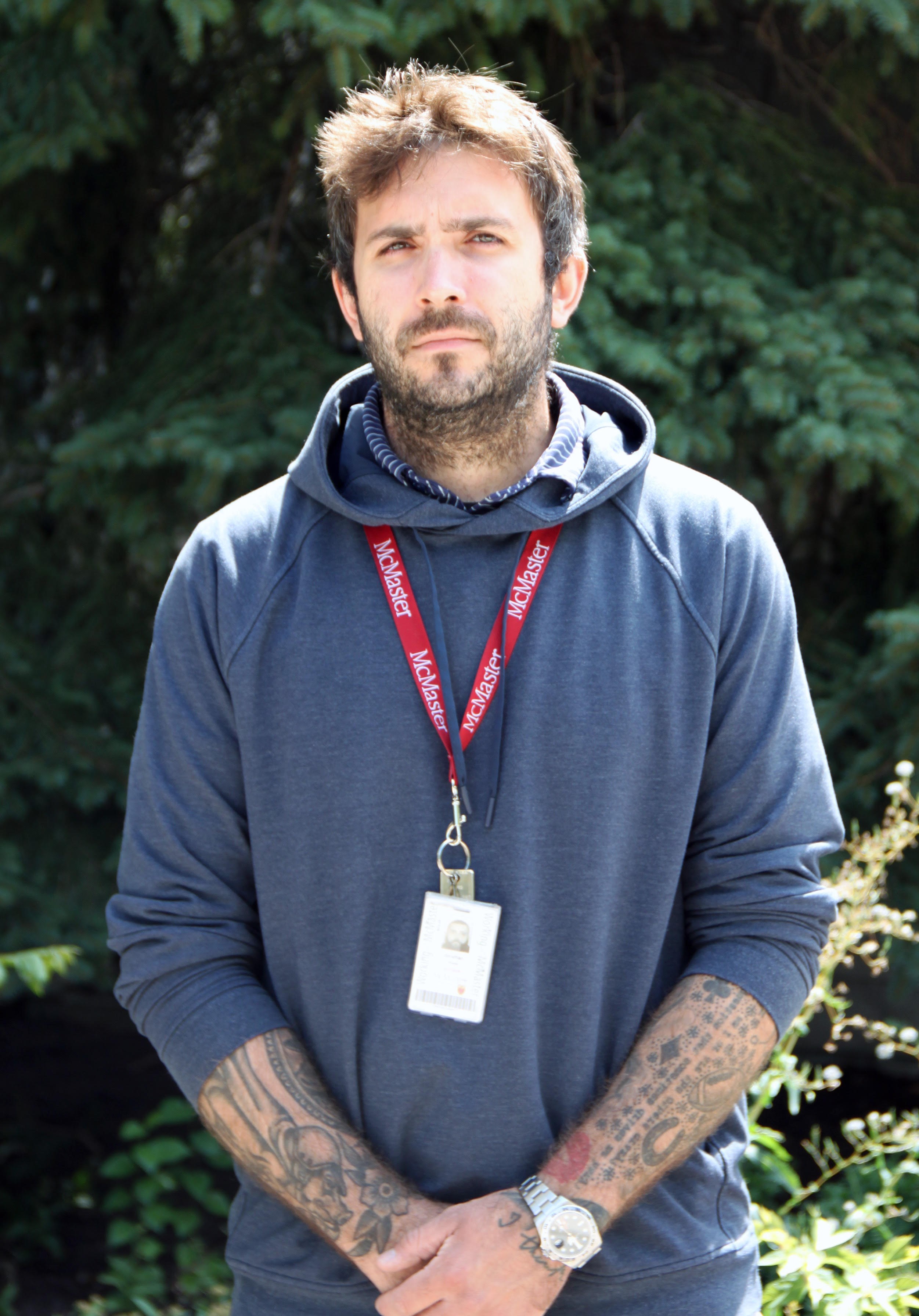
| Dr. Jon Stokes received his BSc in 2011 and his PhD in antimicrobial chemical biology in 2016, both from McMaster University. From 2017 to 2021 he was a postdoctoral fellow at the Broad Institute of MIT and Harvard, carrying a prestigious Banting Fellowship from 2018-2020. Upon completing his postdoc, Jon established his laboratory back at McMaster in the Department of Biochemistry and Biomedical Sciences. The Stokes lab leverages a mindful balance of experimental and computational approaches to discover the next generation of life-saving antibiotics with novel structures and functions that expand the capabilities of these medicines beyond the current state of the art. |
| Machine learning for antibiotic discovery against Acinetobacter baumannii | |
| Wednesday, December 14, 2022 | |
| 09:35 AM - 10:00 AM | |
| Prof Pablo Moscato | |

| Prof. Moscato has close to 300 peer-reviewed scientific publications including the edited books “Handbook of Memetic Algorihtms”
(2012) and “Business and Consumer Analytics: New Ideas” (2019). He was an Australian Research Council (ARC) Future Fellow (2012-2016) and the
Founding Director of the University of Newcastle’s Priority Research Centre (PRC) for Bioinformatics, Biomarker Discovery and Information-Based Medicine
(2007-2015) and the Newcastle Bioinformatics Initiative (2003-2006). He was also the Founding Director of the Information-based Medicine Program of the
Hunter Medical Research Institute (2007-2018). He is currently a Professor and Head of Discipline of Data Science and Statistics at The University of Newcastle, Australia. He obtained his B.S. in Physics from National University of La Plata in 1987, Argentina, before completing a PhD at the University of Campinas, Brazil, in 2001. In 1988, while at Caltech, he developed with M.G. Norman the first memetic algorithm for the Traveling Salesman Problem and championed memetic computing since then. Over the past three decades, he introduced several new computer science methods that lead to advances in personalised medicine, including the discovery of biomarkers and hallmarks of cancer, Alzheimer and other human diseases. Due to his lifetime achievements in interdisciplinary research and in memetic computing in particular, he was nominated to the Rotary STAR (Science, Technology, Aerospace, Robotics) 2018 Awards in the categories of “Health and Medical” and “Knowledge Sharing”. These awards are annually given “in recognition to outstanding scientific and technological achievements with significant humanitarian benefit”. |
| Finding informative patterns in bioinformatics data: What have we learned from using (alpha,beta)-k-feature sets | |
| Wednesday, December 14, 2022 | |
| 10:40 AM - 11:05 AM | |
| Prof. Alan Mark | |
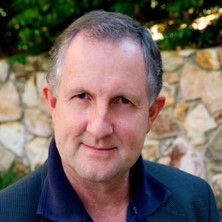
| Prof. Alan Mark obtained his PhD from the John Curtin School of Medical Research, Australian National University (ANU). After postdoctoral positions at the ANU, University of Groningen, The Netherlands and the Federal Institute of Technology (ETH), Zurich, Switzerland he was appointed Professor of Biophysical Chemistry University of Groningen. In 1998 Alan received the Swiss Ruzicka Prize for work on peptide folding. In 2005 he returned to Australia as a Federation Fellowship. Alan is associated with the development of The GROMOS and GROMACS simulation packages as well as the Automated Topology Builder (ATB) and repository. |
| Curved or linear? Mechanistic implications of the 3-dimensional structure of helical antimicrobial peptides | |
| Wednesday, December 14, 2022 | |
| 11:15 AM - 11:40 AM | |
| A/Prof Yuguang Mu | |

| Yuguang Mu is an Associate Professor at Nanyang Technological University, Singapore. His lab is involved in: MD simulation method and data analysis method development Peptide, protein folding, unfolding study, specially aimed at folding, misfolding mechanism which could lead to amyloid fibril DNA dynamics, DNA –protein, DNA-counterions interaction study RNA dynamics and folding study Close collaborations with several experimental groups to explore the underlying mechanism on the molecular, atomic level Machine learning based drug discovery |
| A machine-learning based score function to improve the protein-ligand interaction prediction | |
| Wednesday, December 14, 2022 | |
| 11:50 AM - 12:15 PM | |
| A/Prof. Andrea Kwa Lay Hoon |
| Antibiotic combination therapy | |
| Wednesday, December 14, 2022 | |
| 15:40 PM - 16:05 PM | |
| Prof Lena Friberg | |
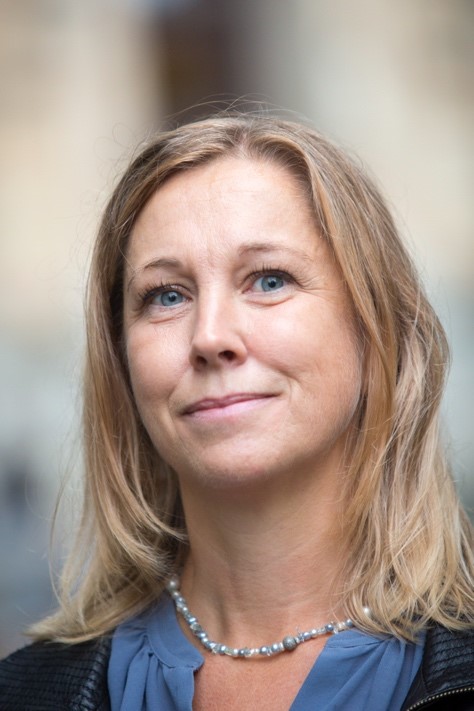
| Lena Friberg is Professor of Pharmacokinetics and Pharmacodynamics at Uppsala University. She obtained her PhD in Pharmacokinetics and Drug Therapy in 2003. Professor Friberg’s research focuses on developing approaches for predictive translation of effects from preclinical data to patients, both for desired outcomes and adverse events. Important achievements include model-based frameworks to be applied for optimized dosing strategies of new and available drugs in the areas of oncology and infection. Professor Friberg has published 170 peer-reviewed research articles and has an h-index of 51. She has supervised >20 students to their PhD and is Deputy Editor-in-chief of CPT: Pharmacometrics & Systems Pharmacology. |
| Model-Informed Drug Development (MIDD) of antibiotics | |
| Wednesday, December 14, 2022 | |
| 16:15 PM - 16:40 PM | |
| Dr Andreas Dräger | |

| Andreas Dräger is the assistant professor for Computational Systems Biology of Infections and Antimicrobial-Resistant Pathogens at the University of Tübingen in Germany. His group aims to combat the spreading of antibiotics resistances by using mathematical modeling and computer simulation of bacterial systems up to entire microbiomes and host-pathogen interactions. In doing so, his group actively contributes to the advancement of various COMBINE standards. |
| Computationally Modeling the Human Microbiome of the Respiratory Tract | |
| Wednesday, December 14, 2022 | |
| 16:50 PM - 17:15 PM | |
| Dr Zhixia (Grace) Y. Danielsen | |

| Dr. Grace Danielsen is Deputy Director of the Division of Infectious Disease Pharmacology in the Office of Clinical Pharmacology at the U.S. Food and Drug Administration (FDA). She received her PhD in Pharmaceutical Sciences from the University of North Carolina, Chapel Hill. Her work at FDA involves the application of clinical pharmacology and translational medicine to the development and evaluation of antiviral and anti-infective drugs and drugs developed under the animal rule. Many indications evaluated under the animal rule are related to counter-terrorism efforts, such as plague and anthrax. Dr. Danielsen is actively engaged in guidance development and regulatory science in the areas of clinical pharmacology and infectious diseases. She is the Co-Chair of the Mass Balance Working Group and currently leading the effort in preparing the FDA guidance on human radiolabeled mass balance study. She helped draft several new or updated guidance documents related to antimicrobial drug development. She also serves as the Chair of the FDA review board to evaluate research proposals from external investigators and oversee the progress of the FDA funded research on optimizing antimicrobial dosing in special populations. |
| Pharmacokinetic and Pharmacodynamic Considerations in the Development and Evaluation of Antibacterial Products | |
| Thursday, December 15, 2022 | |
| 09:15 AM - 09:40 AM | |
| Prof Jason Roberts | |

| Professor Jason Roberts is a Clinical Pharmacist at Royal Brisbane and Women’s Hospital and an Australian National Health and Medical Research Council Leadership Fellow at The University of Queensland. He is Acting Director of the University of Queensland Centre for Clinical Research as well as Interim Director of the Herston Infectious Diseases Institute (HeIDI). He also leads the Centre of Research Excellence RESPOND which aims to develop optimised antibiotic dosing regimens to improve patient outcomes and minimise the emergence of antibiotic-resistant superbugs. |
| Application of population PK into clinical care | |
| Thursday, December 15, 2022 | |
| 09:50 AM - 10:15 AM | |
| A/Prof Gauri Rao | |

| Associate Professor Gauri G. Rao received her PharmD from the State University of New York at Buffalo in 2011. Her Postdoctoral
training in infectious diseases pharmacokinetics/ pharmacodynamics (PK/PD) was at the University at Buffalo in collaboration with Hoffmann
La Roche. During her Postdoctoral training, she completed a Masters in Pharmacometrics. She also has a Masters in Computer Engineering
from Michigan State University, East Lansing. She was a faculty at the University at Buffalo before joining the Eshelman School of Pharmacy
at the University of North Carolina, Chapel Hill in 2016. Her research funded by the National Institutes of Health (NIH), Food and Drug Administration (FDA) and US Department of Defense (DOD) is focused on gaining an improved understanding of the host immune response during the course of bacterial infections. She has adopted a systems approach to develop mechanism-based models that can incorporate the complexity of host immunodynamics and bacterial genomics in addition to drug pharmacokinetics and pharmacodynamics for designing optimized antibiotic regimens. Her other research interests include the design and development of adjuvant therapy (i.e. efflux pump inhibitors), animal and in silico models of infection for optimization of combination regimens, as strategies to counter antimicrobial resistance. She started her term as a permanent member of the Drug Discovery and Molecular Pharmacology (DMPA) Study Section (NIAID/NIH). She is a senior editor of JAC-AMR (Journal of Antimicrobial Chemotherapeutics-Antimicrobial Resistance) focused on education and research in antimicrobial stewardship and resistance. She also serves as the chair of the anti-infective steering committee of ASCPT (American Society for Clinical Pharmacology and Therapeutics). |
| Moving from point-based analysis to systems-based modeling: approaches to address antimicrobial resistance | |
| Thursday, December 15, 2022 | |
| 10:25 AM - 10:50 AM | |
| A/Prof Vijaykrishna Dhanasekaran | |

| Dr Vijaykrishna Dhanasekaran was appointed as Associate Professor in the School of Public Health (SPH) at HKU in 2020. Before joining SPH, he was faculty at
Duke-NUS Medical School Singapore from 2010 and Monash University Australia from 2016, and prior to that a postdoctoral fellow and research assistant professor at HKU
Department of Microbiology. He has a BSc, MSc and MPhil from University of Madras (1994-2000), and a PhD in microbial ecology and evolution from HKU (2002-2005). Dr Dhanasekaran is head of Pathogen Evolution lab. His primary research focus is on the genomic evolution and epidemiology of rapidly evolving viruses such as SARS-CoV-2, influenza, RSV, and others. By conducting epidemiological studies across Asia-Pacific, and through integration of genomic datasets with clinical and immunological data, his group aims to advance understanding of the genetic and ecological factors that determine the emergence and distribution of infectious diseases. Dr. Dhanasekaran has published over 100 research articles with >12,000 citations. He is on the editorial board of Communication Medicine and Frontiers in Virology. |
| Changing epidemiology of respiratory viruses during COVID-19 | |
| Thursday, December 15, 2022 | |
| 11:15 AM - 11:40 AM | |
| A/Prof Tony Velkov | |
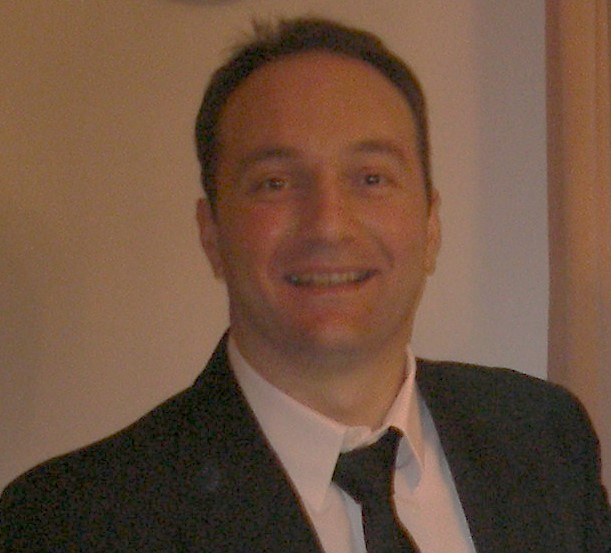
| Tony Velkov is Associate Professor at Monash University. He was awarded a BSc(Hons) in 1996, then a MBBS (Medicine) at University of Melbourne, and then transitioned from the clinic to a PhD at Monash and then largely industry-based research at CSL and US Pharma Rempex through two successive NHMRC Industry fellowships. Due to this unique career pathway, he is well connected with prominent clinicians, researchers, business and Pharma industry leaders globally. From the time of his PhD award he specialized in drug development, structure-activity relationships and pharmacology of antibiotics. He is now recognized as an international leader and advocate for translational research and commercialization of life-saving antimicrobial products and therapies to combat bacterial ‘superbugs’. Overall relative to opportunity, he has established internationally recognized research programs focusing on polymyxins, high international standing and an exceptional record in developing productive programs across industry, universities and hospitals. |
| Structure, function, and biosynthetic origin of octapeptin antibiotics active against extensively drug-resistant Gram-negative bacteria | |
| Thursday, December 15, 2022 | |
| 11:50 AM - 12:15 AM | |
| A/Prof Zongyuan Ge | |
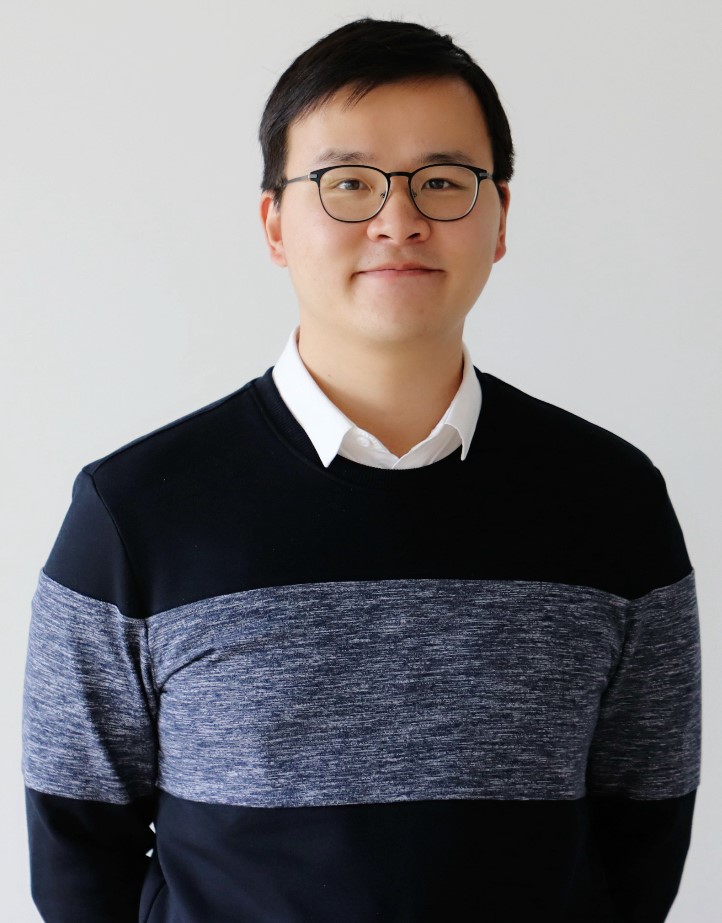
| Associate Professor Zongyuan Ge conducts interdisciplinary research at the boundary between medical
artificial intelligence, computer-aided diagnosis, biomedical engineering, medical imaging and machine learning and
is a multi-award winning medical information science and technology entrepreneur. His research leverages cutting-edge
AI technologies using large-scale multi-modality medical data including imaging, medical records, gene data and models
the clinicians’ medical knowledge underlying tasks like diagnosis, prognosis and treatment for eye (ophthalmology),
skin (dermatology), heart (cardiovascular) and neurodegeneration diseases such as epilepsy and multiple sclerosis. He
is also one of Australia’s most in-demand experts in technology, including medical robotics and artificial intelligence,
and is a passionate science communicator. He currently holds the position of Associate Professor at the Monash University Vice-Chancellor and Provost Office as well as Faculty of Engineering, Research Affiliate at the Australian Centre for Robotic Vision, NVIDIA AI Fellow, the Chief Scientist at Monash-Airdoc Research Centre and Chief Research Officer at Eyetelligence. He is the founding director of the Monash Medical AI group with over fully-funded 20+ PhD students (internal + external), 6 Research Fellows, and 10+ Research Master/FYP students. His research has helped attract more than 25+ million dollars in funding as either primary chief investigator or leading chief investigator from grant bodies, including the National Health and Medical Research Council (NHMRC), Medical Research Future Fund (MRFF), The Australian Research Data Commons (ARDC) and industry funding from NVIDIA, Molemap and Airdoc. Zongyuan’s research papers have been published in top-tier journals and conferences such as The Lancet Digital Health, The British Medical Journal, JAMA, Bioinformatics, Hypertension, IEEE Transactions on Pattern Analysis and Machine Intelligence, IEEE Transactions on Medical Imaging, NeurIPS, CVPR, ICCV, ICLR, KDD, AAAI and MICCAI. His citations h-index is 29, with 5000+ citations only five years post his PhD. He has led and contributed to several international research projects in the areas of dermatology, ophthalmology, radiology and neurology with major industry companies like IBM Watson Health, medical technology unicorn company Airdoc/Eyetelligence and medical/healthcare services providers such as Molemap Clinic, The Alfred Health, Royal Melbourne Hospital, and Princess Alexandra Hospital. His work has been recognised by many international and national awards, including the 200 Most Qualified Young Researchers in Computer and Mathematics by the Scientific Committee of the Heidelberg Laureate Foundation, IBM Scientific Research Accomplishment Award, IBM Manager Choice Award and Monash Exceptional Achievement Award. |
| Close the loop for Medical AI application | |
| Thursday, December 15, 2022 | |
| 14:25 PM - 14:50 PM | |
| Dr. Zuoyu Xu | |
| Zuoyu Xu, Ph.D., Program Officer, Bacteriology and Mycology, National Institute of Allergy and Infectious Diseases, National Institutes of Health (NIH) (2007– present). At NIAID, Dr. Xu directs the discovery and development of therapeutics for a range of high priority bacterial pathogens, including critical and urgent threats as identified by the World Health Organization (WHO). Dr. Xu was Sr. Principal Scientist at the Pfizer Centure Research, Groton, Connecticut (1998-2007), where he led Pfizer’s Antibacterial Drug Discovery efforts. Prior to Pfizer, Dr. Xu was a faculty member at Dartmouth Medical School. Dr. Xu earned his B.S. in Microbiology, M.S. in Virology, and Ph.D. in Molecular Biology and Biochemistry. |
| Antibacterial Drug Discovery and Development Programs, Preclinical and Clinical Services at NIAID | |
| Thursday, December 15, 2022 | |
| 15:30 PM - 16:00 PM | |
ICAComP 2022 is organised by Monash University, Melbourne, Australia and University of Konstanz, Konstanz, Germany
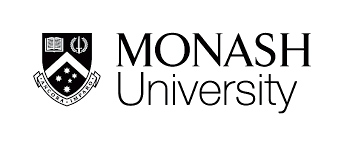
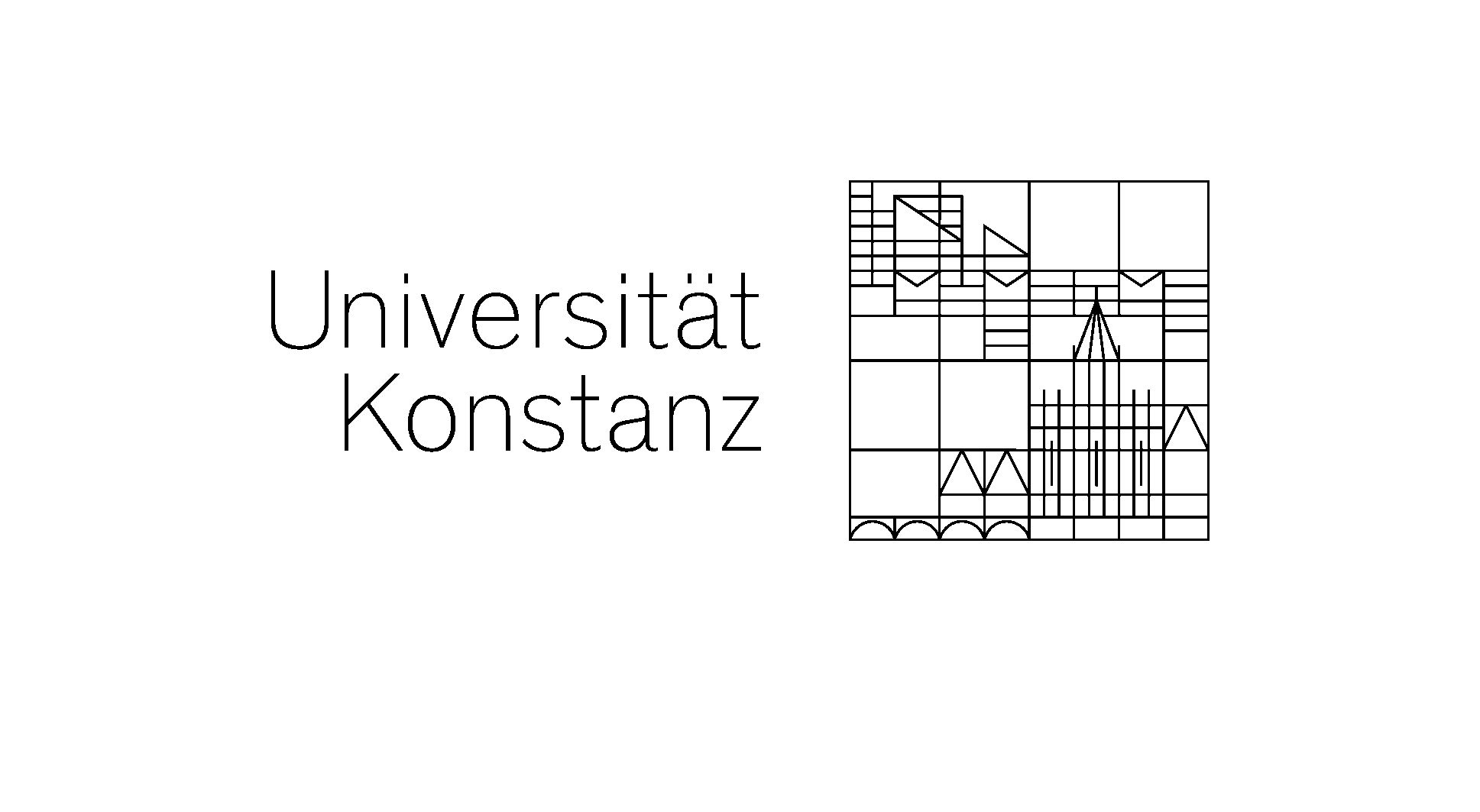
Contact
ICAComP 2022 local organiser (icacomp.adm@gmail.com)
Monash University, Melbourne, Australia
Impressum, Contact, Legal Notice and Data Protection
